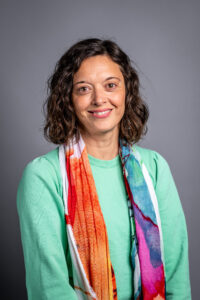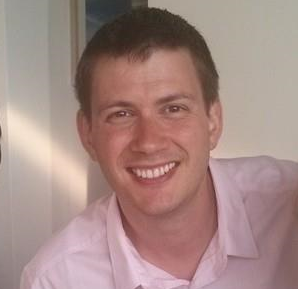 Professor Polly Dalton
Professor Polly Dalton
Polly is the Director of the Attention Lab. Our work looks at selective attention – the means by which relevant stimuli are processed more thoroughly by the brain than less relevant stimuli. In particular, we examine: the relationship between attention and awareness; attentional capture; and the ways in which attention acts within and between the sensory modalities of vision, hearing and touch. We also investigate attentional allocation during real life tasks, such as driving cars, piloting aircraft and experiencing immersive environments such as virtual reality. Polly is also Head of Audience Futures for the CoSTAR National Lab and Co-Director of the UKRI AI Centre for Doctoral Training in AI for Digital Media Inclusion.
 Rich Hemming
Rich Hemming
Rich is a doctoral researcher implementing procedural and spatial audio in virtual environments within the Electronic Engineering department. His particular research focus is on audio for assistive technology, working with the blind and visually impaired by creating a ‘visual-auditory sensory substitution device’ to aid navigation and to understand objects. His practice-based PhD research has links to the Attention Lab through his supervisor Polly Dalton. He is measuring impact on perception, usability and cognitive load of the engineered device. He is also involved in audio design for immersive experience projects, pursuing research and development opportunities in commercial and academic contexts.
 Ryan Jefferies
Ryan Jefferies
Ryan is a doctoral researcher investigating the ways in which in drivers of remotely-operated vehicles might be able to build up awareness of the driving environment despite not being physically present. This project is funded by the ESRC via the SeNSS Doctoral Training Partnership, run in collaboration with TRL and housed in Royal Holloway’s new Omnidrome Research and Innovation Centre.
 Isabelle Verhulst
Isabelle Verhulst
Isabelle is a doctoral researcher investigating the factors associated with users’ sense of presence (‘being there’) in virtual environments. She has an industry background in international consumer marketing and new product development, and degrees in marketing, business and clinical psychology. In a previous role as Audience Insights researcher with StoryFutures, she researched audience behaviours in immersive contexts to help develop innovative approaches to storytelling. She helped SMEs to design and implement user testing and audience insight research for their immersive prototypes, and provides lectures and workshops for academia and industry audiences. Her research focuses on user experience research in new technologies and mental health, heritage and entertainment.
Past members
 Dr Andy Woods
Dr Andy Woods
Andy has moved over to the CoSTAR National Lab where he is now a Senior Lecturer in Creative Technologies and UX. Before this, he was an Engineer Psychologist at StoryFutures. He has a PhD in multisensory perception, from Trinity College, Dublin (2005), and is interested in how the senses come together. He has been a postdoc at three different labs, has spent time working in industry as a researcher, and has been involved in three startup companies. His passion is software development (Python, JavaScript), where he focuses on the creation of apps linked to the field of perceptual psychology.
 Dr Juliet Holdstock
Dr Juliet Holdstock
Juliet completed a Daphne Jackson fellowship, funded by the Economic and Social Research Council (ESRC), which is supporting her return to science after a career break. Her current research is investigating how eyewitness identification is affected by aging. Understanding eyewitness identification throughout the lifespan will help the development of procedures that enable victims of crime of all ages to provide evidence as accurately and reliably as possible. Before taking a career break, Juliet completed a PhD at the University of St Andrews, exploring electrophysiological measures of orienting of attention, and worked in post-doctoral research positions at St Andrews, Durham and Sheffield universities, investigating amnesia and the contribution of different brain regions to memory. She continued with this line of research as a lecturer at the University of Liverpool. She has also taught as an Associate Lecturer for the Open University.
 Clare Mutzenich
Clare Mutzenich
Clare completed an ERSC-funded PhD studentship investigating remote operation of self-driving cars. There are significant variations between situation awareness (SA) in normal driving contexts and SA in remote driving operations. Remote vehicle operators will have limited prior awareness of the situation and will be reliant on second-hand information from the scene. In the scenario of a remote ‘drop in’ to an autonomous vehicle, SA will be poorer and take longer to develop. Clare’s research examines what information is necessary for remote operators to build remote SA quickly and accurately when they have not been monitoring the situation before taking over, for example what level of situation awareness is sufficient to control a vehicle remotely, how much exposure is required to build up this level of awareness and whether the provision of additional information (e.g. additional camera feeds, VR) can improve awareness levels in remote operators.
Dr Craig Arnold
Craig’s project focused on how the brain forms and maintains stable visual representations at multiple hierarchical levels, both in visual perception and short-term memory (VSTM). Most models of robust VSTM agree that it has a very limited capacity (maybe only 3-4 items). However, such models focus on our ability to maintain very precise and accurate representations of a few individual objects. Both introspectively and empirically, these few items do not appear to be the only information that can be remembered. Many other forms of information can be recalled, including average feature value, variability, categorical gist, between-object configuration, stimulus detection without identification, etc. Although these may be insufficient to identify correctly the specific value of an individual object, they play important roles in supporting mechanisms such as attention, working memory, scene gist, etc. Craig’s research addressed how attention and VSTM operate at different levels of representation, and what implications these may have for existing models of VSTM. He also has broad interests across vision, attention, working memory, and awareness, and his research has employed behavioural measures, psychophysics, eye-tracking, and EEG.
 Dr Sandra Murphy
Dr Sandra Murphy
Sandra completed her PhD in the Attention Lab, investigating different determinants of auditory selective attention, such as whether the principles of load theory can also apply to the auditory modality. She also combined behavioural and electrophysiological approaches to investigate the influence of reward on auditory selective attention. After her PhD, Sandra spent a year working as a post doc with Professor Jane Raymond at Birmingham University investigating the influence of learned value associations on visual attention, using behavioural and eye tracking approaches. She then returned to the Attention Lab, working on a project looking at the role of attention on tactile awareness.
 Dr Stuart Hyde
Dr Stuart Hyde
Stuart’s research interests include attention, sensory integration and visual cognition, with a specific interest in selective attention (the mechanisms of prioritised processing of task relevant stimuli over task irrelevant stimuli) and multisensory integration (how attention effects the integration of information within and between different sensory modalities). The ESRC funded PhD project Stuart worked on was conducted in collaboration with Transport Research laboratory (TRL) and examined the effects of vehicle automation on situation awareness in drivers of different ages using a range of methodologies including behavioural measures, eye tracking, and realistic vehicle driving simulators. The project aimed to understand the impact of vehicle automation on drivers’ cognition and behaviour within a strong theoretical framework.
Nick Fraenkel
Nick’s background is in perception and movement, and in particular the ways in which different sensory modalities overlap, interact and work together. His MSc research focused on how vision influences hearing in the speech perception phenomenon known as the McGurk effect. Before his masters, as a research assistant at the Perception In Action Labs at Edinburgh University, Nick worked on a number of projects investigating the mechanisms underlying co-ordinated movement in musicians, athletes, swans and microbes. He also has a long-standing interest in the psychology of music – partly because musical activity is an interesting and demanding perceptuo-motor task, but mainly just because he likes music.